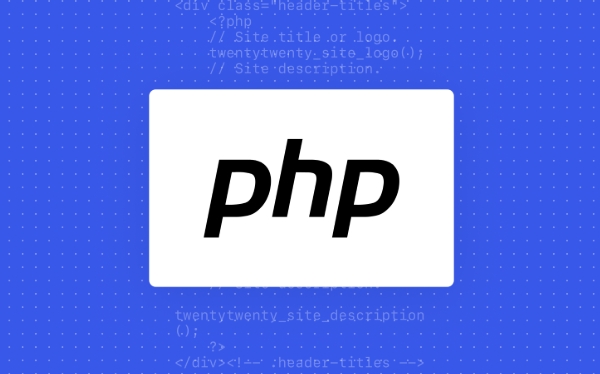 Backend Development
Backend Development
 PHP Tutorial
PHP Tutorial
 Why Your Variables Disappear: A Practical Guide to Scope Puzzles
Why Your Variables Disappear: A Practical Guide to Scope Puzzles
Why Your Variables Disappear: A Practical Guide to Scope Puzzles
Jul 24, 2025 pm 07:37 PMVariables disappear due to scope rules—where they’re declared determines where they can be accessed; 2. Accidental global creation occurs when omitting var/let/const, while strict mode prevents this by throwing errors; 3. Block scope confusion arises because var is function-scoped, unlike let and const which are block-scoped; 4. Function scope traps include variable shadowing and improper access to nested function variables; 5. Asynchronous issues happen when var in loops causes closures to share the same variable, fixed by using let or closures; always declare variables with let or const, use strict mode, and leverage tools like ESLint to catch scope-related errors early.

You write a few lines of code, set a variable, then suddenly it’s gone—“undefined,” “not found,” or just silently ignored. Frustrating, right? This usually isn’t a bug in your language. It’s scope at work. Understanding scope—where variables exist and can be accessed—is key to avoiding these disappearing acts.

Let’s break down why variables seem to vanish and how to keep them where you need them.
What Is Scope, and Why Does It Matter?
Scope defines the visibility of variables in different parts of your code. Think of it like rooms in a house: a variable declared in the kitchen can’t be seen from the bedroom unless it’s in a shared space.

There are three main types:
- Global scope: Variables declared outside any function or block. They’re accessible everywhere.
- Function (local) scope: Variables inside a function. Only that function can see them.
-
Block scope (
letandconstin JavaScript, for example): Variables exist only within{}blocks likeif,for, or plain{}.
When you try to access a variable outside its scope, it’s not just hidden—it might as well not exist.

Common Ways Variables "Disappear"
1. Accidental Global Creation (or Avoidance)
In JavaScript, using a variable without var, let, or const creates a global—even if you meant to keep it local.
function badExample() {
x = "I'm global now!";
}
badExample();
console.log(x); // "I'm global now!" — maybe not what you wantedBut reverse the case: forgetting var/let in strict mode ('use strict') throws an error. So your variable doesn’t just disappear—it crashes the script.
? Fix: Always declare variables with let or const. Use strict mode to catch mistakes early.
2. Block Scope Confusion
Many assume var and let behave the same. They don’t.
if (true) {
var a = "visible everywhere";
let b = "only in this block";
}
console.log(a); // Works: "visible everywhere"
console.log(b); // Error: b is not definedvar is function-scoped, not block-scoped. So a leaks out of the if block. But b (with let) is confined.
? Fix: Use let and const for block-level control. Know that var only respects function boundaries.
3. Function Scope Traps
Variables inside functions are local by default. But nesting functions can create confusion.
function outer() {
let secret = "hidden";
function inner() {
console.log(secret); // Works: inner can see outer's variables
}
inner();
}
outer();
console.log(secret); // Error: not accessible hereThis is lexical scope—inner functions can access outer variables, but not vice versa.
But what if you forget to call the inner function? Or redeclare a variable?
function outer() {
let x = 1;
function inner() {
let x = 2; // This shadows the outer x
console.log(x); // 2
}
inner();
console.log(x); // 1 — original unchanged
}? Fix: Be aware of variable shadowing. Name variables clearly to avoid confusion.
4. Asynchronous Code and Closure Issues
Here’s a classic: variables in loops with callbacks.
for (var i = 0; i < 3; i ) {
setTimeout(() => console.log(i), 100);
}
// Output: 3, 3, 3 — not 0, 1, 2!Why? Because var doesn’t have block scope, and by the time setTimeout runs, the loop has finished. i is 3.
But change var to let:
for (let i = 0; i < 3; i ) {
setTimeout(() => console.log(i), 100);
}
// Output: 0, 1, 2 — works!let creates a new binding for each iteration.
? Fix: Use let in loops with async callbacks. Or wrap with closures if stuck with var.
How to Debug Scope Issues
When a variable seems to vanish:
- Check where it was declared — is it in a function, block, or globally?
- Look at the error message — “not defined” means it never existed; “undefined” means it was declared but not assigned.
-
Use
console.logor debugger — step through and see where it appears or disappears. - Avoid global pollution — too many globals make tracking harder.
Also, consider:
- Using
constby default,letwhen needed. - Keeping functions small so scope is easier to follow.
- Enabling strict mode and using linters (like ESLint) to catch undeclared variables.
Bottom Line
Variables don’t really disappear—they were never in scope to begin with. The rules aren’t arbitrary; they protect your code from naming collisions and unintended behavior.
Understand the scope rules of your language, declare variables properly, and pay attention to where and how you use them.
Basically: declare it right, use it in the right room.
The above is the detailed content of Why Your Variables Disappear: A Practical Guide to Scope Puzzles. For more information, please follow other related articles on the PHP Chinese website!

Hot AI Tools

Undress AI Tool
Undress images for free

Undresser.AI Undress
AI-powered app for creating realistic nude photos

AI Clothes Remover
Online AI tool for removing clothes from photos.

Clothoff.io
AI clothes remover

Video Face Swap
Swap faces in any video effortlessly with our completely free AI face swap tool!

Hot Article

Hot Tools

Notepad++7.3.1
Easy-to-use and free code editor

SublimeText3 Chinese version
Chinese version, very easy to use

Zend Studio 13.0.1
Powerful PHP integrated development environment

Dreamweaver CS6
Visual web development tools

SublimeText3 Mac version
God-level code editing software (SublimeText3)

Hot Topics
 The Omnipresent Scope: A Practical Guide to PHP's Superglobals
Jul 26, 2025 am 09:47 AM
The Omnipresent Scope: A Practical Guide to PHP's Superglobals
Jul 26, 2025 am 09:47 AM
PHP's hyperglobal variables are always available built-in arrays used to process request data, manage state and obtain server information; 1. When using $_GET, URL parameters need to be type-converted and verified; 2. When receiving form data through $_POST, filtering should be performed with filter_input(); 3. Avoid using $_REQUEST to prevent security vulnerabilities; 4. $_SESSION needs to call session_start() and log in to reset the session ID; 5. When setting $_COOKIE, enable secure, httponly and samesite attributes; 6. The information in $_SERVER cannot be fully trusted and cannot be used for security verification; 7.$_ENV may be
 Navigating the Boundaries: A Deep Dive into Local and Global Scope
Jul 26, 2025 am 09:38 AM
Navigating the Boundaries: A Deep Dive into Local and Global Scope
Jul 26, 2025 am 09:38 AM
Thedifferencebetweenlocalandglobalscopeliesinwherevariablesaredeclaredandaccessible:globalvariablesaredefinedoutsidefunctionsandaccessibleeverywhere,whilelocalvariablesaredeclaredinsidefunctionsandonlyaccessiblewithinthem.1.Globalscopeallowsbroadacce
 Demystifying Global Access: `global` Keyword vs. the `$GLOBALS` Array
Jul 25, 2025 am 05:27 AM
Demystifying Global Access: `global` Keyword vs. the `$GLOBALS` Array
Jul 25, 2025 am 05:27 AM
ThetwomaintoolsforaccessingglobalvariablesinPHParetheglobalkeywordandthe$GLOBALSsuperglobalarray;1)Theglobalkeywordcreatesareferencetoaglobalvariableinsideafunction,allowingdirectaccessandmodification,andifthevariableisundefined,itinitializesitasnull
 Mastering Lexical Scoping: The `use` Keyword and PHP Anonymous Functions
Jul 25, 2025 am 11:05 AM
Mastering Lexical Scoping: The `use` Keyword and PHP Anonymous Functions
Jul 25, 2025 am 11:05 AM
In PHP, if you want to use external variables in anonymous functions, you must explicitly import them through the use keyword; 1. Use is used to introduce external variables into the lexical scope of the closure; 2. Pass variables by default by value, and pass them by reference with &$var syntax; 3. Multiple variables can be imported, separated by commas; 4. The value of the variable is captured when the closure is defined, not when it is executed; 5. Each iteration in the loop creates an independent closure copy to ensure that the variable value is correctly captured; therefore, use is a key mechanism to achieve the interaction between the closure and the external environment, making the code more flexible and controllable.
 Scope Implications of Generators and the `yield` Keyword
Jul 25, 2025 am 04:45 AM
Scope Implications of Generators and the `yield` Keyword
Jul 25, 2025 am 04:45 AM
Functions using yield will become generators, and when called, they return the generator object instead of being executed immediately; 2. Local variables of the generator will not be destroyed during the yield pause, but will continue to exist with the generator frame until the generator is exhausted or closed; 3. Extended variable life cycle may lead to an increase in memory usage, especially when referring to large objects; 4. When combined with closures, LEGB rules are still followed, but the latebinding problem of looping variables needs to be solved by immediately binding (such as the default parameter value); 5. .close() should be called explicitly to ensure that finally block execution is performed to avoid delays in resource cleaning. The generator affects memory and behavior by extending the survival time of variables, but does not change the lexical scope rules.
 The Scope Resolution Order: How PHP Finds Your Variables
Jul 25, 2025 pm 12:14 PM
The Scope Resolution Order: How PHP Finds Your Variables
Jul 25, 2025 pm 12:14 PM
PHPresolvesvariablesinaspecificorder:1.Localscopewithinthecurrentfunction,2.Functionparameters,3.Variablesimportedviauseinclosures,4.Globalscopeonlyifexplicitlydeclaredwithglobaloraccessedthrough$GLOBALS,5.Superglobalslike$_SESSIONand$_POSTwhichareal
 Why Your Variables Disappear: A Practical Guide to Scope Puzzles
Jul 24, 2025 pm 07:37 PM
Why Your Variables Disappear: A Practical Guide to Scope Puzzles
Jul 24, 2025 pm 07:37 PM
Variablesdisappearduetoscoperules—wherethey’redeclareddetermineswheretheycanbeaccessed;2.Accidentalglobalcreationoccurswhenomittingvar/let/const,whilestrictmodepreventsthisbythrowingerrors;3.Blockscopeconfusionarisesbecausevarisfunction-scoped,unlike
 The `global` Keyword: A Double-Edged Sword in PHP Scope Management
Jul 25, 2025 pm 05:37 PM
The `global` Keyword: A Double-Edged Sword in PHP Scope Management
Jul 25, 2025 pm 05:37 PM
TheglobalkeywordinPHPallowsfunctionstoaccessvariablesfromtheglobalscope,butitshouldbeusedsparinglyduetosignificantdrawbacks.1)Itenablesquickaccesstoconfigurationvaluesinsmallorlegacyscripts.2)ItfitsproceduralcodebaseslikeolderWordPresspluginswheredep





